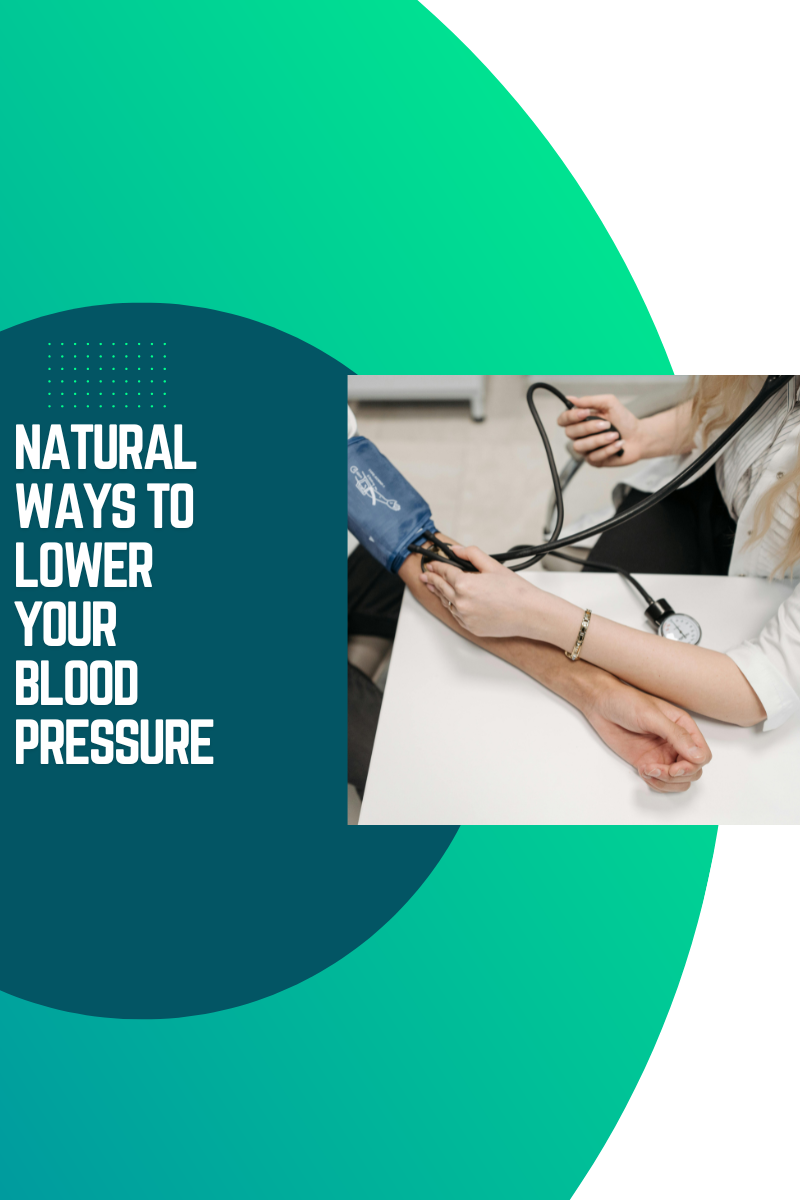Introduction Blood pressure might just be a number but its impact on our health is significant and real. Understanding and managing blood pressure is crucial because high blood pressure, or hypertension, can lead to severe health issues like heart disease, stroke, and kidney problems. While medication is a common go-to solution, natural approaches provide a gentle yet effective way to manage your blood pressure and enhance your overall well-being.
Understanding Blood Pressure
What is blood pressure?
Blood pressure is the force exerted by moving blood against the walls of the blood vessels. It’s vital because it helps circulate blood throughout your body, delivering nutrients and oxygen to where they’re needed.
How is it measured?
Blood pressure is measured using two numbers: systolic (when the heart beats) and diastolic (when the heart rests). A normal reading would be under 120/80 mmHg.

What levels are considered high?
Generally, a blood pressure reading of 130/80 mmHg or higher is considered high and may warrant attention.
Dietary Changes to Lower Blood Pressure
Salt Intake: Reducing sodium in your diet
Too much salt can cause the body to retain water, increasing blood pressure. Aim to limit salt intake to less than 2,300 milligrams a day—about one teaspoon of table salt.

Potassium Power: Increasing potassium through fruits and vegetables
Potassium helps balance the amount of sodium in your cells, and not getting enough potassium can lead to high blood pressure. Foods like bananas, potatoes, spinach, and oranges are packed with potassium.
The DASH Diet: Dietary approaches to stop hypertension
The DASH diet emphasizes vegetables, fruits, whole grains, and low-fat dairy products and suggests only moderate levels of fish, poultry, and nuts.
Lifestyle Modifications for Better Blood Pressure
Regular Exercise: Types of activities recommended
Activities like walking, jogging, cycling, swimming, and dancing are great for your heart and can lower blood pressure.
Weight Management: How maintaining a healthy weight helps
Excess weight strains the heart and can contribute to high blood pressure. Even losing a small amount of weight if you’re overweight or obese can help reduce your blood pressure.
Stress Reduction: Techniques that can lower stress and blood pressure
Simple practices like mindfulness, meditation, and even deep-breathing exercises can reduce stress and thereby help manage blood pressure.

The Role of Natural Supplements
Omega-3 Fatty Acids: Sources and benefits
Food sources include fish like salmon and mackerel, as well as flaxseeds and walnuts. Omega-3s can improve heart health by lowering blood pressure.
Magnesium: How it affects blood pressure
Magnesium helps regulate blood pressure. It’s found in foods like whole grains, legumes, seeds, nuts, and green leafy vegetables.
Garlic and Coenzyme Q10: Their potential effects on heart health
Both garlic and Coenzyme Q10 supplements are known to have beneficial effects on heart health and can help lower systolic blood pressure.

Beneficial Habits to Adopt
Smoking Cessation: The impact of tobacco on blood pressure
Quitting smoking can significantly improve your heart health and blood pressure.
Limiting Alcohol Consumption: Guidelines and benefits
Limiting alcohol to recommended levels (one drink a day for women and two for men) can help lower your blood pressure.
Adequate Sleep: Connecting sleep quality and blood pressure
Poor sleep can hurt your body’s ability to regulate stress hormones, including those that control blood pressure.
Monitoring and Maintenance
Keeping Track: Ways to monitor blood pressure at home
Investing in a good-quality home blood pressure monitor can help you keep tabs on your blood pressure.
Regular Check-ups: Importance of medical guidance
Even while managing blood pressure naturally, regular visits to a healthcare provider are crucial for overall health.
Adjustments Over Time: When to consider medication
If natural methods aren’t sufficient on their own, your healthcare provider might recommend medications.
Summary
By incorporating these natural methods—ranging from dietary changes to stress relief techniques—into your daily life, you can significantly lower your blood pressure, improve heart health, and decrease the risk of heart disease.
FAQs
What is the most effective natural method to reduce blood pressure?
A combination of a healthy diet (like the DASH diet), regular exercise, and weight management is proven to be very effective.
How quickly can lifestyle changes affect my blood pressure?
Positive changes can be seen as quickly as a few weeks to a few months after adopting healthier habits.
Are there interactions between supplements and blood pressure medications I should be aware of?
Yes, some supplements can interact with medications. It’s essential to consult with a healthcare provider before starting any new supplement if you’re on blood pressure medication.
Embrace these natural and gentle strategies to manage your blood pressure and lead a heart-healthy life. A little effort in tweaking your daily habits could make a big difference in your overall health and quality of life.
I am not a medical professional. It’s essential to consult with a healthcare provider regarding the best way to lower your blood pressure and before starting any methods and/or medication.
